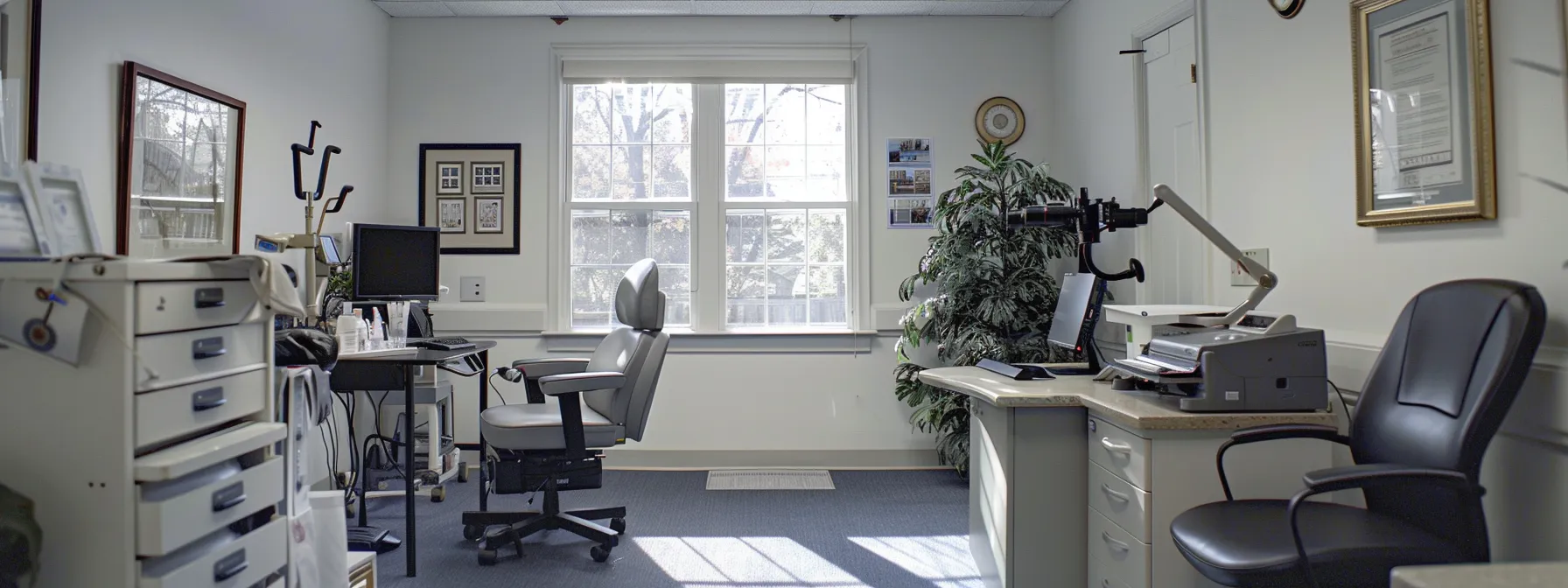What Seniors Should Know About Medicare and Eye Care Options
Navigating vision insurance can be challenging, especially for seniors trying to understand their options. Many individuals mistakenly believe Medicare fully covers vision care, but that is not the case. This article will clarify the basics of vision insurance for seniors, explore Medicare options for coverage, and address common myths surrounding these topics. By gaining insights from this content, readers will learn how to better manage their vision care expenses, ensuring they receive the necessary support while minimizing out-of-pocket costs related to services like eye exams and contact lenses.
Key Takeaways
- Understanding vision insurance helps seniors navigate their eye care options effectively
- Seniors should explore both Medicare and additional vision insurance for comprehensive coverage
- Regular eye exams are crucial for detecting conditions early and maintaining overall health
- Community resources can provide affordable vision care options for seniors in need
- Staying informed about vision insurance regulations can enhance seniors’ healthcare decisions
Understand the Basics of Vision Insurance for Seniors

Understanding vision insurance is essential for seniors navigating their healthcare options. This section examines what vision insurance covers for older adults, including fillmore eye care, identifies different types of plans available, and explains how vision insurance works alongside Medicare. Seniors will also learn about enrollment options and recognize key terms in vision policies. Lastly, a comparison of vision insurance versus standalone plans will provide practical insights for informed decision-making.
Examine What Vision Insurance Covers for Older Adults
Vision insurance for older adults typically covers essential eye care services, such as annual eye exams and necessary corrective lenses, which can be crucial for maintaining overall health. In cases of injury or specific ocular conditions, coverage may extend to treatments and medication that manage these issues, complementing Medicare Part D for those needing prescriptions. Understanding how these benefits work can greatly help seniors optimize their insurance plans, ensuring they receive the necessary medical attention for any vision-related health concerns.
Identify Different Types of Vision Insurance Plans Available
Various types of vision insurance plans are available to seniors, allowing them to choose options that best suit their specific needs. Plans can include coverage for routine eye exams, lens options, and different copayment structures, which can vary based on the level of care required. For seniors with chronic conditions, such as chronic kidney disease, it is especially important to understand the extent of coverage under Medicare Advantage, as these plans often incorporate vision benefits that address potential complications related to such conditions.
Learn How Vision Insurance Works Alongside Medicare
Understanding how vision insurance interacts with Medicare plays a significant role in a senior’s overall health strategy. Patients should know that while Medicare provides basic eye care coverage, such as cataract surgery, it does not typically cover routine eye exams or glasses. Vision insurance can fill these gaps by offering comprehensive coverage that includes regular check-ups and corrective lenses, ensuring that seniors maintain healthy eyesight that remains critical for daily life and activities in environments like nursing homes.
- Patients need to understand covered services under Medicare.
- Vision insurance provides coverage for routine care not included in Medicare.
- Having both can enhance overall eye health management.
- Regular eye exams are important for monitoring optic nerve health.
- Combining insurance options can ease financial stress for seniors.
Discover Enrollment Options for Seniors Seeking Vision Coverage
Seniors seeking vision coverage have various enrollment options tailored to their specific needs. They should consider both Medicare Advantage plans, which may offer additional vision care for expenses related to glasses and laser treatments, and standalone vision insurance plans that provide broader coverage. Understanding the cost associated with these plans, such as premiums and out-of-pocket expenses for services and treatments, is essential for making informed decisions about their eye care needs, especially in managing potential damages to their eyesight over time.
Recognize Key Terms in Vision Insurance Policies
Understanding key terms in vision insurance policies is essential for seniors navigating their options. Terms such as “copayment,” which refers to the amount a senior pays for each visit or service, can affect the overall costs associated with ophthalmology and optometry care. Another important term is “deductible,” which represents the amount out-of-pocket that must be paid before the insurance begins to cover expenses, including necessary surgeries and routine eye examinations. This information helps seniors and their caregivers make informed decisions about their eye care coverage.
- Understanding copayment amounts can help manage costs during visits.
- Knowing the deductible helps anticipate out-of-pocket expenses.
- A thorough grasp of coverage terms assists in navigating insurance options effectively.
Compare Vision Insurance Versus Standalone Plans
When comparing vision insurance to standalone plans, seniors should consider their unique healthcare needs. Vision insurance often provides essential coverage for routine check-ups and preventive care, which is vital for early detection of conditions such as glaucoma or macular degeneration, diseases that can lead to more serious complications requiring eye surgery. Standalone plans may offer greater flexibility and a broader range of physicians but could result in higher out-of-pocket costs for specialized treatments, including those related to blood pressure issues affecting vision.
- Vision insurance is beneficial for routine eye exams and preventive care.
- Standalone plans may provide more options but can be costly.
- Choosing the right plan depends on individual health needs and financial considerations.
Explore Medicare Options for Vision Coverage

Medicare provides distinct coverage options for seniors regarding vision care. This section clarifies what Medicare Part A and B cover for vision needs, explains how Medicare Advantage plans affect available benefits, reviews the limitations of Medicare’s vision coverage, and outlines supplemental policies for additional care. It also evaluates eligibility criteria and analyzes costs associated with Medicare vision services, offering valuable insights for informed decision-making.
Clarify What Medicare Part a and B Cover for Vision Needs
Medicare Part A primarily covers inpatient services, including surgeries related to the eyes, such as cataract surgery, but it does not include routine vision care. Conversely, Medicare Part B offers some coverage for outpatient services connected to vision care, such as diagnostic eye exams if related to certain medical conditions like diabetes or glaucoma. Seniors should recognize that while Medicare provides essential eye health coverage, it does not extend to preventive eye exams or corrective lenses, which may necessitate additional vision insurance for comprehensive care:
- Medicare Part A covers inpatient eye surgeries.
- Medicare Part B provides coverage for outpatient diagnostic eye exams.
- Routine eye exams and glasses are typically not covered by Medicare.
- Additional vision insurance may be necessary for comprehensive coverage.
Understand How Medicare Advantage Affects Vision Benefits
Medicare Advantage plans often enhance the vision benefits available to seniors, providing comprehensive coverage that may not be included under original Medicare. These plans typically cover routine eye exams, eyewear, and services that address specific vision-related health issues, making them a viable option for those needing regular eye care. Understanding the terms and benefits of a Medicare Advantage plan can help seniors make informed choices about their eye health and financial needs:
Review Medicare’s Limitations on Vision Care Coverage
Medicare does not provide extensive coverage for routine vision care, which can be a significant limitation for seniors seeking comprehensive eye health management. While it covers diagnostic eye exams related to medical conditions, such as glaucoma, it excludes routine eye exams and corrective lenses, requiring additional insurance for those services. Understanding these limitations is essential for seniors to make informed decisions regarding vision insurance and to ensure they receive necessary eye care without incurring unexpected out-of-pocket expenses.
Get to Know Supplemental Policies for Additional Coverage
Seniors considering vision coverage should explore supplemental policies designed to fill the gaps left by Medicare. These policies can provide essential benefits not covered under standard Medicare plans, such as routine eye exams and corrective lenses. By understanding and evaluating these additional options, seniors can enhance their overall vision care strategy, ensuring they receive the necessary services to maintain their eye health.
Evaluate Eligibility Criteria for Vision-Related Medicare Services
Evaluating eligibility criteria for vision-related Medicare services is vital for seniors seeking coverage. Generally, beneficiaries must have Medicare Part A and Part B to access certain eye care benefits, particularly for conditions impacting vision, such as diabetes or glaucoma. Understanding these eligibility requirements allows seniors to anticipate which services may be covered and to seek additional vision insurance for any necessary routine exams and corrective lenses not included in standard Medicare plans.
Analyze Costs Associated With Medicare Vision Services
When analyzing costs associated with Medicare vision services, seniors must consider both covered and excluded services under Medicare plans. While Medicare Part B provides coverage for diagnostic eye exams related to specific medical conditions, it typically does not pay for routine eye exams, glasses, or contact lenses, leading to potential out-of-pocket expenses. Seniors should evaluate these costs carefully, as having additional vision insurance can help alleviate financial burdens and ensure comprehensive eye care, allowing for better management of their overall health needs.
Learn About Vision Care Services That Medicare Covers

Medicare provides coverage for specific vision care services vital for seniors’ eye health. This section identifies the types of eye examinations Medicare supports, explores coverage for medically necessary eyewear, and reviews common eye surgeries covered as treatment. It also discusses how referrals work for vision care, the necessary criteria for covered eye treatments, and the role of eye specialists within the Medicare network.
Identify the Types of Eye Examinations Medicare Supports
Medicare supports specific types of eye examinations that are crucial for seniors’ health. These include diagnostic eye exams related to medical conditions such as diabetes or glaucoma, where early detection can significantly impact treatment outcomes. Seniors should understand that while routine vision exams are not covered, these medically necessary evaluations provide essential support in managing chronic health issues and preserving eyesight.
Explore Coverage for Medically Necessary Eyewear
Medicare covers medically necessary eyewear for seniors under certain circumstances, primarily when it relates to specific medical conditions. For instance, after cataract surgery, Medicare may provide coverage for glasses or contact lenses required for optimal vision. This coverage ensures that seniors can access essential eyewear that directly contributes to their vision health and overall well-being:
Review Common Eye Surgeries Medicare Covers as Treatment
Medicare covers several common eye surgeries essential for treating vision-related conditions in seniors. Procedures such as cataract surgery and glaucoma treatment are typically included under Medicare Part B when medically necessary, helping seniors regain or maintain their sight. Understanding these coverage options can facilitate better health management, ensuring that seniors receive the necessary surgical interventions without facing excessive financial burdens.
Discuss How Referrals Work for Vision Care Under Medicare
Referrals for vision care under Medicare are essential for seniors seeking specialized eye health services. Typically, primary care physicians can provide referrals to eye specialists, ensuring that Medicare covers necessary exams and treatments related to specific medical conditions. Understanding the referral process helps seniors navigate their eye care needs effectively, ensuring they receive appropriate attention without incurring unexpected costs that could arise from receiving services outside of the Medicare network.
Understand Necessary Criteria for Covered Eye Treatments
Understanding the necessary criteria for covered eye treatments under Medicare is vital for seniors. Medicare typically covers eye treatments when they are deemed medically necessary, which means they must relate to specific medical conditions like glaucoma, diabetic retinopathy, or cataracts. Seniors should consult their primary care physician to assess their eligibility for coverage, as a referral may be necessary to receive these essential services without incurring additional costs.
Evaluate the Role of Eye Specialists in the Medicare Network
Eye specialists play a crucial role in the Medicare network by providing essential services for seniors with specific vision health needs. They are often the first point of contact for seniors experiencing vision problems that require specialized care, as Medicare typically covers a range of exams and treatments when referred by primary care physicians. Ensuring that seniors understand how to access these specialists is vital for managing their eye health effectively and accessing necessary treatments, as well as avoiding unexpected costs associated with out-of-network providers.
Discover Options for Paying Out-of-Pocket Vision Expenses

Seniors may face various out-of-pocket expenses related to vision care, making it essential to understand their options. This section covers analyzing costs of routine eye exams without insurance, calculating expenses for eyewear like glasses and contacts, and adjusting budgets for potential vision care costs. It also examines discounts available at optical shops and clinics, explores health savings accounts for vision expenses, and identifies community resources for affordable vision care.
Analyze Costs of Routine Eye Exams Without Insurance
Without insurance, seniors may find that the cost of routine eye exams can range from $50 to over $300, depending on the location and the provider’s pricing structure. These expenses can add up, especially for older adults who require regular check-ups to monitor conditions like glaucoma or macular degeneration. Seniors should consider budgeting for these costs and exploring community health services that may offer discounted eye exams, helping them manage their vision health effectively while minimizing financial strain.
Calculate Expenses for Eyewear, Such as Glasses and Contacts
Seniors need to understand the costs associated with eyewear, as expenses for glasses and contact lenses can vary widely. On average, a basic pair of prescription glasses may cost between $100 and $300, while contact lenses can range from $200 to $400 annually when factoring in the purchase of solutions and cases. It is advisable for seniors to shop around and consider options such as discount retailers or online services that offer competitive pricing, allowing them to manage their vision care expenses more effectively.
Adjust Budgets to Accommodate Potential Vision Care Costs
Adjusting budgets for potential vision care costs is a proactive step seniors should consider to manage their eye health effectively. Many older adults may encounter unexpected expenses related to routine eye exams and corrective eyewear, which are often not fully covered by Medicare or vision insurance. By creating a dedicated savings plan for vision-related expenses, seniors can ensure they are financially prepared for necessary treatments and follow-up appointments, reducing the risk of financial strain when health needs arise.
Research Discounts Offered by Optical Shops and Clinics
Many optical shops and clinics offer various discounts specifically designed to support seniors managing out-of-pocket vision expenses. Understanding these discounts can significantly ease financial burdens associated with eye care; for instance, some retailers may provide reduced prices for eyeglasses or offer promotions on contact lenses. Seniors can benefit from checking both local optical shops and national chains for special offers, often available during certain times of the year or through membership programs, ensuring access to affordable eye care services.
Investigate Health Savings Accounts for Vision Expenses
Health Savings Accounts (HSAs) can be a valuable resource for seniors looking to manage out-of-pocket vision expenses. These tax-advantaged accounts allow individuals to set aside funds specifically for qualified medical expenses, including vision care. By contributing to an HSA, seniors can effectively budget for costs related to eye exams, glasses, and other unforeseen eye health needs.
- Seniors can contribute pre-tax income to HSAs, reducing their taxable income.
- HSAs offer flexibility, allowing funds to roll over year after year without expiration.
- Funds can be used for various vision-related expenses, providing a financial buffer.
- Using HSAs for vision care can facilitate easier management of health costs.
Identify Community Resources for Affordable Vision Care
Seniors seeking affordable vision care can access numerous community resources designed to help manage costs. Local health departments, non-profit organizations, and charitable clinics often offer free or low-cost eye exams and eyewear programs aimed at older adults. Additionally, some national organizations provide financial assistance for vision care, including programs that partner with eye care professionals to deliver essential services at reduced rates.
- Community health departments and non-profit organizations provide support for low-cost eye exams.
- Charitable clinics offer services tailored to seniors needing vision care.
- National organizations may offer financial assistance for eye care needs.
Recognize Common Myths About Medicare and Vision Insurance

Myths surrounding Medicare and vision insurance can lead to confusion among seniors. This section examines common misconceptions, including the limitations of vision care coverage, potential out-of-pocket costs, and the importance of understanding coverage deadlines. It also clarifies the belief that all seniors have the same coverage and addresses the necessity of obtaining additional insurance. Separating facts from fiction regarding seniors’ rights will empower individuals to make informed healthcare decisions.
Examine Myths Regarding Vision Care Coverage Limitations
Many seniors misunderstand the limitations of vision care coverage under Medicare and vision insurance. A common myth is that Medicare fully covers all vision care, but in reality, it mainly provides coverage for medically necessary services linked to specific conditions, like cataracts or glaucoma. Consequently, seniors often need additional vision insurance for routine exams and eyewear, as these are typically not covered, creating a gap that they must address for comprehensive eye care.
Dispel Misconceptions About Out-of-Pocket Costs
A common misconception among seniors is that out-of-pocket costs for vision care under Medicare are minimal or nonexistent. In reality, many eye care services not covered by Medicare can lead to significant expenses, including routine eye exams and prescription eyewear. For those navigating these costs, having supplemental vision insurance can help manage and reduce out-of-pocket expenses, ensuring that necessary eye care is accessible without overwhelming financial strain.
Clarify the Misunderstanding of Coverage Deadlines
Many seniors hold misconceptions about coverage deadlines associated with Medicare and vision insurance. Specifically, they may believe that there are flexible enrollment periods for vision-related services when, in fact, strict windows exist that dictate when individuals can enroll or make changes to their plans. Understanding these deadlines ensures that seniors do not miss out on essential vision care benefits that are crucial for maintaining their eye health.
By grasping the importance of timely enrollment, seniors can avoid potential gaps in their vision care coverage and manage their eye health more effectively. This knowledge empowers them to take charge of their vision insurance decisions, ensuring they have access to necessary eye care services when needed:
Address the Belief That All Seniors Have the Same Coverage
The belief that all seniors have the same vision insurance coverage under Medicare is a common misconception. In reality, coverage varies significantly based on individual circumstances, including supplemental insurance choices and specific health needs. For instance, some seniors may have additional vision insurance that covers routine eye exams and glasses, while others may rely solely on Medicare, which has limitations in terms of preventive eye care services:
- Coverage differs from one individual to another.
- Supplemental insurance can enhance vision benefits.
- Understanding personal coverage options is essential for effective health management.
Challenge Myths Related to the Need for Additional Insurance
Many seniors believe that Medicare alone is sufficient for covering all their vision needs, but this misconception can lead to gaps in essential care. In reality, Medicare primarily covers specific medically necessary services and procedures, leaving routine eye exams and corrective lenses largely uncovered. Seniors can benefit from considering additional vision insurance, which provides comprehensive coverage for preventive care and ongoing eye health, ensuring they have access to the necessary services to maintain their quality of life.
Separate Facts From Fiction Regarding Seniors’ Rights
Seniors often encounter misconceptions regarding their rights under Medicare and vision insurance. It is essential for them to understand that they have the right to access necessary vision care tailored to their specific needs. This includes the ability to seek additional vision insurance to cover gaps in Medicare’s coverage, particularly for routine eye exams and prescription eyewear, which are typically not included. By grasping the facts about their entitlements, seniors can make informed decisions that enhance their overall health management and ensure they receive the appropriate vision care they deserve.
Stay Updated on Changes to Vision Insurance Regulations

Seniors should stay informed about changes to vision insurance regulations to enhance their coverage options and ensure they receive necessary care. Following relevant legislation that impacts senior coverage, attending webinars, and signing up for newsletters from reputable health organizations can provide essential insights. Connecting with local agencies, monitoring official Medicare websites, and engaging with community forums can also help seniors navigate their vision insurance experiences effectively.
Follow Relevant Legislation That Impacts Senior Coverage
Seniors should actively monitor legislation related to vision insurance and Medicare, as changes in laws can directly affect their coverage options and benefits. Staying informed about new regulations or proposed bills enables older adults to adjust their insurance strategies and ensure they receive the appropriate care. Seniors can utilize resources like government websites, advocacy groups, and community workshops to gain insights on how such changes impact their healthcare choices:
Attend Webinars or Workshops on Insurance Updates
Attending webinars or workshops focused on vision insurance updates can significantly benefit seniors looking to enhance their understanding of insurance options. These sessions often feature experts who provide insights into recent changes in regulations, making it easier for older adults to navigate their insurance plans effectively. By participating in such events, seniors can ask questions, share concerns, and gain practical knowledge about their vision care coverage, ultimately enabling them to make informed decisions regarding their health needs.
Sign Up for Newsletters From Reputable Health Organizations
Signing up for newsletters from reputable health organizations is a proactive way for seniors to stay informed about changes to vision insurance regulations. These newsletters often provide timely updates on policy changes, coverage options, and important deadlines, which are crucial for effective health management. By receiving regular communications from trusted sources, seniors can better understand their rights and the benefits available to them, allowing for more informed decisions regarding their vision care and overall health plans.
Connect With Local Agencies for Community Information
Connecting with local agencies can significantly benefit seniors seeking information about vision insurance and Medicare. Community organizations often provide valuable resources, including updates on changes in regulations, assistance with understanding coverage options, and support in navigating the application process. By utilizing the expertise of local agencies, seniors can ensure they stay informed and make educated decisions regarding their eye care and insurance needs.
Monitor Official Websites for Medicare and Insurance Changes
Seniors should regularly monitor official websites to stay informed about changes in Medicare and vision insurance regulations. Websites like the Centers for Medicare & Medicaid Services offer vital updates on coverage options and benefits that may affect healthcare decisions. By keeping track of these changes, seniors can ensure they are up-to-date with their eye care options and can effectively address any potential gaps in their insurance coverage.
Engage With Forums Discussing Vision Insurance Experiences
Engaging with online forums that discuss vision insurance experiences can provide seniors with valuable insights into navigating their options. These platforms allow older adults to share personal stories, ask questions, and learn from others facing similar challenges with vision insurance and Medicare coverage. Participating in these discussions can empower seniors to make informed decisions about their eye care needs and stay updated on any recent changes in regulations that might impact their coverage.
Navigating vision insurance and Medicare is crucial for seniors to ensure comprehensive eye care coverage. Understanding the limitations of Medicare, the benefits offered by vision insurance, and the options available can empower seniors to make informed decisions about their eye health. By recognizing key terms and exploring possible financial resources, they can effectively manage out-of-pocket expenses. Staying informed about changes in regulations and coverage options further enhances their ability to access the vision care they need.




